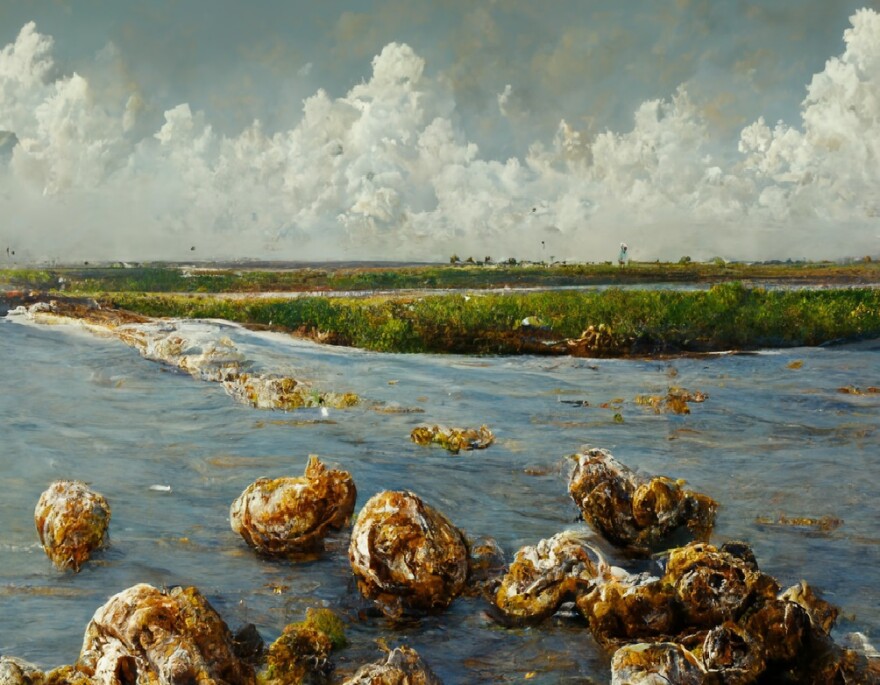In early November, Texas Parks and Wildlife permanently closed three bays on the Gulf Coast to oyster fishing. TPR’s Jerry Clayton recently spoke with Christine Jensen, Galveston Bay Ecosystem Leader about those closures and the state of the oyster fisheries in Texas.
This interview has been edited and condensed for length and clarity
Clayton: Why did the agency do this? And are these closures truly permanent?
Jensen: The permanent closure is in the Mesquite Bay complex. It's composed of Carlos, Ayres and Mesquite Bays down between Aransas Bay and San Antonio Bay. And the permanent closure protects an ecologically important and sensitive oyster habitat.
That area provides shoreline protection and acts as a nursery habitat for fish. And the Mesquite Bay complex contains reefs that are near the Cedar Bayou Pass, as well as a lot of seagrass and salt marsh. And all of this helps to provide habitat for fish that are recruiting in back and forth from the ocean and into the estuaries and provides essential nursery habitat.
The physical structure of the oyster reefs there can protect the shoreline from erosion and storm surge. And so the combination of all these ecologically important factors, coupled with the high fishing pressure that we've seen from the commercial oyster boats in that area over the last several years have led to the need for a permanent closure.
It is going to be a permanent closure and it will be closed to both commercial and recreational oyster harvest.
Clayton: Now, we spoke back in, I believe, January of 2022 when several oyster fisheries were temporarily closed. Are things even worse today?
Jensen: Things are not as good this year as they have been, as it was maybe even last year or in years past. So, yeah. In general, oysters have been under stress from environmental factors, including flooding and weather events such as Hurricane Ike and Hurricane Harvey. And these factors, coupled with a lot of the intense pressure that we've had from the fishery in recent years, have led to declines in abundance of market size oysters. Those are oysters that are three inches and larger and able to be sold and has led to multiple reef closures.
Clayton: There are critics who say that the Coastal Conservation Association and other groups are controlling TPWD with these decisions. What do you say to that?
Jensen: We're looking at this ecologically and from the fishery perspective as well. Oysters are unique in that they're both an essential habitat and they support an entire fishery. So it's the goal of Parks and Wildlife to ensure that the fishery is sustainable and that the resource endures over time. So we're looking at the long term success of this.
Clayton: In your opinion, what do you think it's going to take to see a recovery of the oyster fisheries along the Texas coast?
Jensen: Oysters in recent years have had just kind of a 1-2 punch from Mother Nature. You know, if we can get a break from Mother Nature and, the fishery just adds on top of all of that. So if we could have some sort of break from fishing pressure. That's why we have the closures. Hopefully with some time oysters, if we have the right conditions, we're hopeful that the resource can come back.
Clayton: What's the progress of the oyster mariculture industry in Texas, and is this possibly an answer to the oyster fisheries problems?
Jensen: The mariculture industry right now in Texas is in its infancy. So they're just starting to get their farms up and going. We only have a few mariculture farms in existence right now in Texas. However, the interest is definitely growing and we've had a lot of consultations with people who are interested in setting up a farm and getting into that fishery and trying to figure out how best to make that industry grow. And so it's just really developing. We'll see where it goes in the future, but there's definitely a lot of interest.



